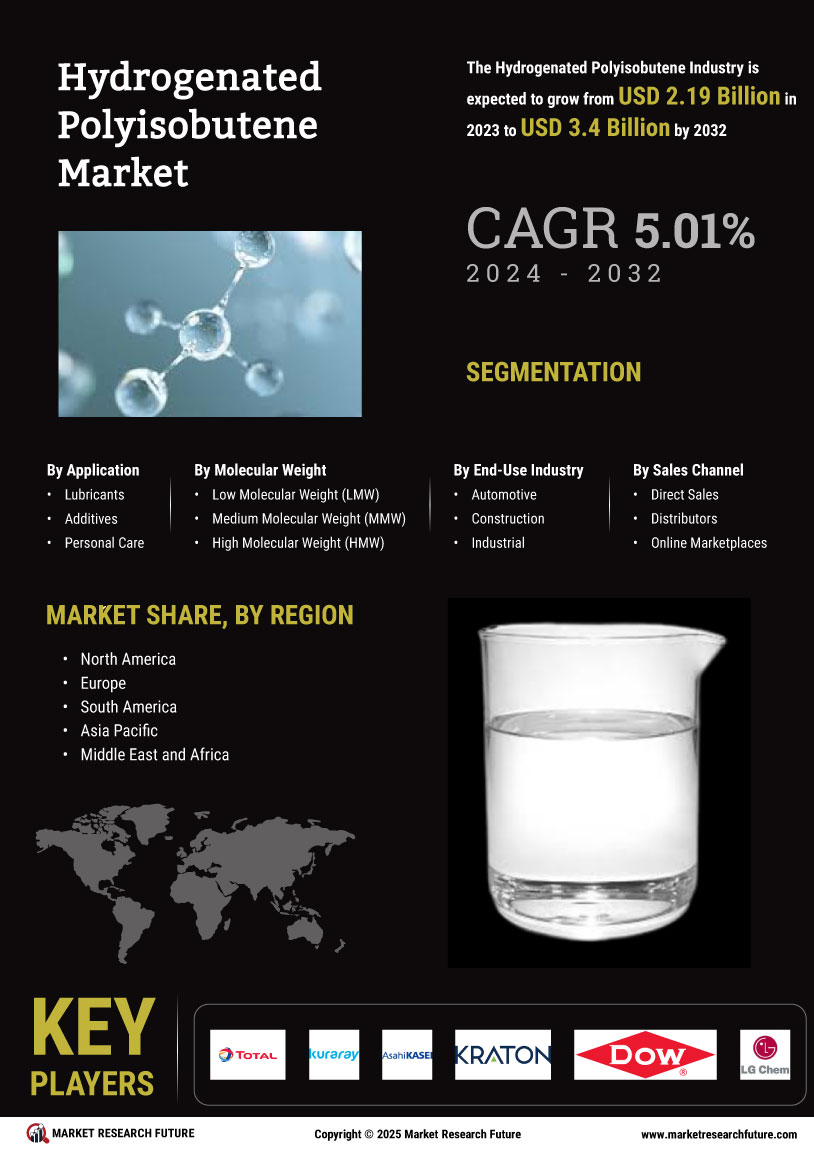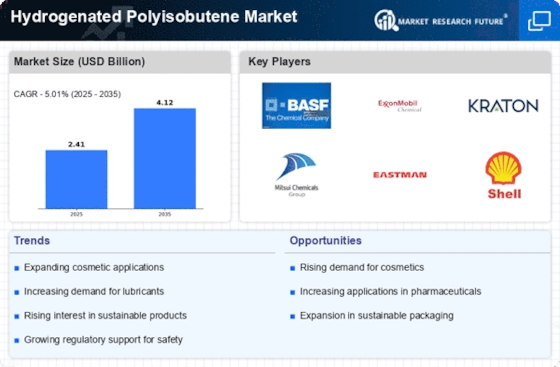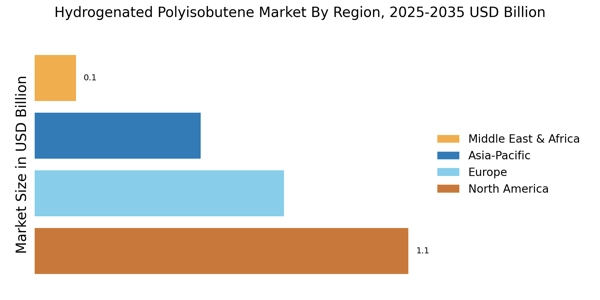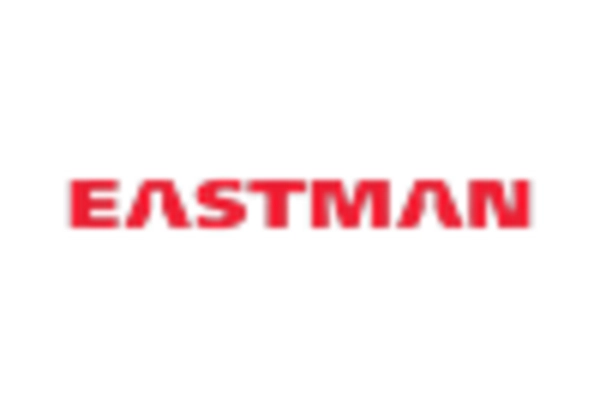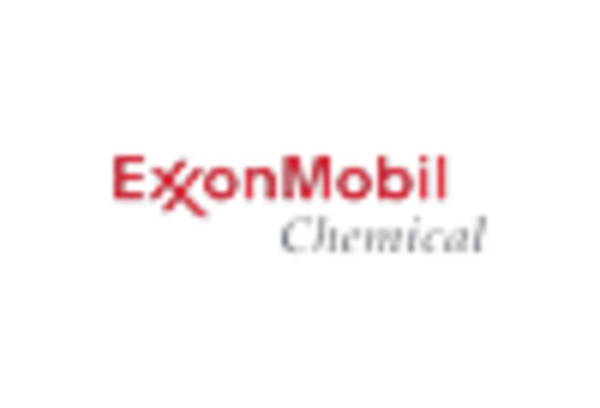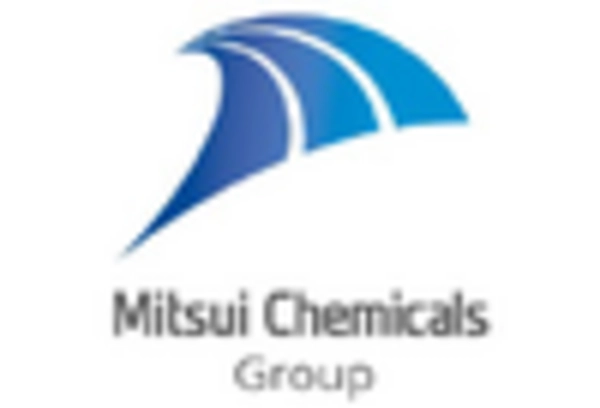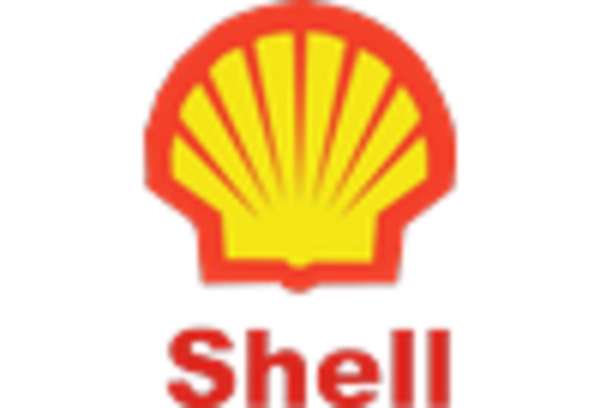Expansion of the Pharmaceutical Sector
The Hydrogenated Polyisobutene Market is also witnessing growth due to the expansion of the pharmaceutical sector. This compound is increasingly utilized in drug formulations, particularly in topical applications, where its emollient properties enhance the delivery of active ingredients. The pharmaceutical industry is projected to grow at a steady rate, driven by advancements in drug development and an increasing focus on patient-centric formulations. As the demand for effective and safe pharmaceutical products rises, hydrogenated polyisobutene is likely to gain traction as a preferred excipient. This trend suggests that the Hydrogenated Polyisobutene Market will continue to evolve, adapting to the needs of pharmaceutical manufacturers seeking to improve product performance and patient outcomes. The intersection of these two industries presents a unique opportunity for growth and innovation.
Emerging Markets and Consumer Awareness
The Hydrogenated Polyisobutene Market is experiencing growth fueled by emerging markets and increasing consumer awareness regarding product ingredients. As consumers in developing regions become more informed about the benefits of high-quality ingredients, the demand for products containing hydrogenated polyisobutene is likely to rise. This trend is particularly evident in the cosmetics and personal care sectors, where consumers are seeking products that offer both efficacy and safety. Market analysts suggest that the growth rate in these regions could surpass that of more established markets, presenting a significant opportunity for manufacturers. The Hydrogenated Polyisobutene Market must adapt to these changing dynamics by tailoring products to meet the specific needs and preferences of consumers in emerging markets. This adaptability could prove crucial for sustained growth in the coming years.
Growing Interest in Anti-Aging Products
The Hydrogenated Polyisobutene Market is poised to benefit from the increasing consumer interest in anti-aging products. As demographics shift towards an aging population, there is a heightened demand for skincare solutions that address signs of aging. Hydrogenated polyisobutene serves as an effective ingredient in these formulations, providing moisture retention and enhancing skin texture. Market Research Future indicates that the anti-aging skincare segment is expected to grow significantly, with projections suggesting a market value exceeding 50 billion dollars by 2027. This growth trajectory indicates a lucrative opportunity for the Hydrogenated Polyisobutene Market, as brands seek to innovate and differentiate their offerings in a competitive landscape. The ability of hydrogenated polyisobutene to improve product efficacy aligns well with consumer desires for effective anti-aging solutions, thereby driving its adoption in this segment.
Rising Demand in Personal Care Products
The Hydrogenated Polyisobutene Market is experiencing a notable surge in demand, particularly within the personal care sector. This compound is increasingly utilized in formulations for moisturizers, lip balms, and sunscreens due to its emollient properties. The market for personal care products is projected to grow at a compound annual growth rate of approximately 5% over the next few years, indicating a robust appetite for high-quality ingredients. As consumers become more discerning about product formulations, the inclusion of hydrogenated polyisobutene is likely to enhance product appeal, thereby driving market growth. Furthermore, the versatility of this ingredient allows manufacturers to create a wide range of textures and finishes, which is essential in meeting diverse consumer preferences. This trend suggests a promising future for the Hydrogenated Polyisobutene Market as it aligns with evolving consumer demands.
Increased Regulatory Support for Safe Ingredients
The Hydrogenated Polyisobutene Market benefits from a favorable regulatory environment that emphasizes the use of safe and effective ingredients in consumer products. Regulatory bodies are increasingly advocating for the use of non-toxic and hypoallergenic substances, which positions hydrogenated polyisobutene as a preferred choice among formulators. This compound is recognized for its safety profile, making it compliant with various international regulations. As a result, manufacturers are more inclined to incorporate hydrogenated polyisobutene into their formulations, thereby expanding its market presence. The ongoing push for transparency in ingredient sourcing and formulation practices further enhances the attractiveness of this compound. Consequently, the Hydrogenated Polyisobutene Market is likely to witness sustained growth as companies align their product offerings with regulatory expectations and consumer preferences for safety.
